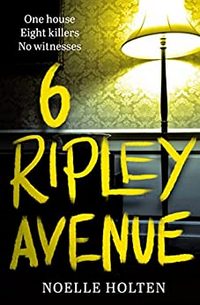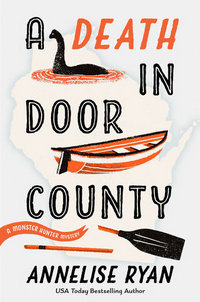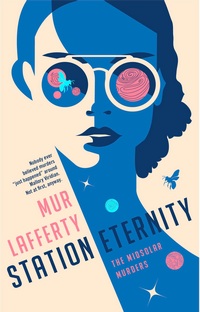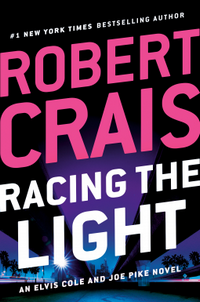 Racing the Light
Racing the Light
by Robert Crais
DETAILS: Series: Elvis Cole, #18 Publisher: G.P. Putnam's Sons Publication Date: November 1, 2022 Format: eARC Length: 368 pg. Read Date: October 12-14, 2022

What’s Racing the Light About?
The essence of the case is that Elvis is hired by the mother of a young man who has gone missing to find him. This is pretty par for the course for Elvis Cole—a missing persons case.
Here’s what makes this distinct: the mother has money—she pays a generous retainer in cash (so generous, Elvis gives some back) and you get the impression that it wouldn’t be difficult for her to add a few more thousand. Before she walks into the office, two people come in and do a security sweep. Adele Schumacher believes her son, Joshua, has been taken by government agents for his investigation into Area 51 for his podcast. So, yeah, not a typical day in the office.
The podcast is called In Your Face with Josh Shoe, and it’s frequently about government corruption, conspiracies, and whatnot—but they’ve branched out to things like interviewing a porn actress. His childhood friend/podcasting partner, Ryan, tells Elvis that Josh is trying to move to more mainstream topics (Ryan doesn’t seem on board with this, for what it’s worth). Ryan shares Adele’s theory for Josh’s absence, Josh has been taken because he returned to Area 51 and found something.
But Elvis starts to find evidence that Josh is investigating something he didn’t tell Ryan about—Elvis can’t figure out what it is, sadly, but he starts to figure out who Josh might be interviewing for this story. And one of them has gone missing, too. Is this tied to his disappearance or did the twenty-something self-employed and single guy just flake off for a few days?
It’s not long before Elvis starts to think he’s not the only one looking for Josh and he enlists help from Joe Pike (who brings in Jon Stone). If those two get on board, you know things are about to get dangerous.
Pike and Stone
The problem with getting to know the PI’s more lethal/less-hung-up-about hurting people friend/sidekick/partner better is that it’s harder to keep them feeling dangerous and mysterious—it maybe even gets to the point where they stop being quite as prone to violence as they once were, and their charcoal-gray hats get a little closer to white. With Joe Pike getting some novels of his own, a lot of his sharp edges have been dulled for fans, so it was nice that Crais brought along Jon Stone so when Pike couldn’t be ruthless and cold-blooded, there’d be someone who could.
He gets to be that guy here—he’s helpful (very), resourceful, and mercenary. He pitches in because Pike pushes him to—not because he cares about Elvis or the fate of Josh. But what he does, he does well. (and is amusing for the reader throughout)
Pike is also not quite the active presence in this book that he has been lately—so when he does show up and act, it makes it feel a bit more super-human. Crais really upped his game with Pike in this novel and it allows him to steal almost every scene he’s in. Naturally, the phone calls between Pike and Cole are still fun to read—if you can write an entertaining conversation with one party being nearly-monosyllabic, you’ve got a gift.
Lucy and Ben
Lucy and Ben come by for an almost-unannounced visit to ensure that Elvis can’t give his full attention to the case. Which sounds snarky and may not be wholly fair of me. But it’s not wrong.
I enjoy the character of Ben and the way he interacts with Elvis—and continue to do so. I appreciated and believed what he was going through—both on his own and with his mother—at this stage of life, and Crais’s portrayal of this was one of the (many) highlights of this novel. It was also a good way to remind the reader just But Lucy has bothered me for a while now (although I was initially a fan), and I’m not certain that this book alleviates that (nor do I think Crais is altogether worried about it). I’m going to reserve judgment on this appearance for now. I did like Cole’s response to her visit and presence (when it didn’t take him off of his game, although I thought that was a nice touch).
So, what did I think about Racing the Light?
I need to spend some time thinking about this idea, but while reading this book I started to think of some notable first meetings between a PI and their client—like The Big Sleep, The Doorbell Rang, God Save the Child, and The Judas Goat*—and how those meetings can be a bellwether for the rest of the book. If the meeting seems pretty good/typical, the rest of the book will be, too; if the meeting catches your attention, the rest of the book will be of a higher quality.** The first meeting between Elvis and Adele Schumacher definitely fits—it’s not your standard meeting (the presence of her personal security helps). Right away, I could tell this was going to be a better-than-usual Elvis Cole novel. There’s not much that can beat that, in my book.
* This is a list generated in a rush, and I know I’ve left off some big ones, but as indicated, this is a theory-in-progress, I might work it out fully later.
** It’s likely that a better book is going to be better from the first chapter, and I just like the idea of creating a litmus test.
My opinion never wavered from that point on—this is some of the best writing Crais has given us in a long time—there are some passages/sentences/phrases I’ve had to read a few times just because I enjoyed them so much. I’m going to have a hard time limiting myself when quoting from the book once I get the hardcover. I’m already looking forward to a re-read of this somewhere down the road.
Along those lines, there’s one passage following a conversation between Elvis and Josh’s father that I’d believe Crais stole from one of the earliest Robert B. Parker novels. It’s not often that I get a reminder of the shared DNA between Elvis and Spenser. I appreciate what distinguishes the two more than their similarities, but it’s good to see the family resemblance is still there—it’s what attracted me to both characters (and their authors!).
We see the return of some characters that Crais hasn’t used in a while, too—which adds to the overall feeling of this novel hearkening back to earlier Elvis novels more than the last few. Another of the ways this book shines is in the supporting characters, not just that many from the old gang are back, but characters for this book. We get to know a couple of people connected to the missing persons really well, they’re well-fleshed out, and you can’t help feeling empathy for them and connected to them. For example, there’s a man who lives in Griffith Park who’s a witness to part of a cover-up—we get four chapters from his perspective. And I like him enough already that I’d read a short story/novella just about him.
I’ve probably gone on more than long enough at this point, let me wrap it up.
New readers will find plenty to enjoy here as well as well-established fans should. Obviously, newcomers won’t get all the character moments that come from the buildup of 17 previous novels, but that doesn’t mean they won’t walk away with a sense of them. Don’t let the existence of those novels dissuade you, see them as an added bonus of backstory you can explore if you get into these characters.
I don’t see how long-term fans aren’t going to relish this novel. Racing the Light doesn’t carry the emotional heft of L.A. Requiem or The Last Detective (primarily because those books explored the characters of Elvis and Pike in depths that Crais can’t repeat), but in terms of plot, pacing, and character this is their equal. I haven’t been this excited about a Robert Crais novel since The Promise.
I’m telling you, readers, don’t miss out on this one.
Disclaimer: I received this eARC from PENGUIN GROUP Putnam via NetGalley in exchange for this post—thanks to both for this.

This post contains an affiliate link. If you purchase from it, I will get a small commission at no additional cost to you. As always, the opinions expressed are my own.
![]()



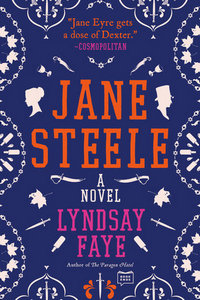

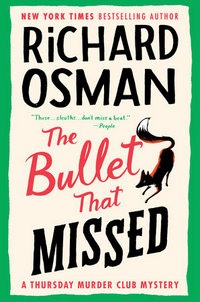

 Rex Stout’s
Rex Stout’s 